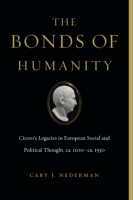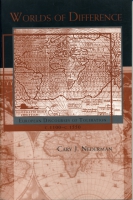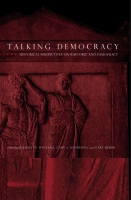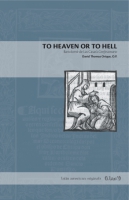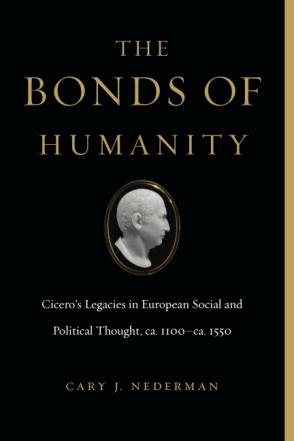
The Bonds of Humanity
Cicero’s Legacies in European Social and Political Thought, ca. 1100–ca. 1550
Cary J. Nederman
The Bonds of Humanity
Cicero’s Legacies in European Social and Political Thought, ca. 1100–ca. 1550
Cary J. Nederman
“An invaluable resource for early European political thought. Nederman’s careful reading and thorough scholarship fill an important gap in our understanding of the influence of Cicero in this neglected period.”
- Description
- Reviews
- Bio
- Table of Contents
- Sample Chapters
- Subjects
In this book, Cary J. Nederman presents a persuasive counternarrative to the widely accepted belief in the dominance of Aristotelian thought. Surveying the work of a diverse range of thinkers from the twelfth to the sixteenth century, including John of Salisbury, Brunetto Latini, Marsiglio of Padua, Christine de Pizan, and Bartolomé de Las Casas, Nederman shows that these men and women inherited, deployed, and adapted key Ciceronian themes. He argues that the rise of scholastic Aristotelianism in the thirteenth century did not supplant but rather supplemented and bolstered Ciceronian ideas, and he identifies the character and limits of Ciceronianism that distinguish it from other schools of philosophy.
Highly original and compelling, this paradigm-shifting book will be greeted enthusiastically by students and scholars of early European political thought and intellectual history, particularly those engaged in the conversation about the role played by ancient and early Christian ideas in shaping the theories of later times.
“An invaluable resource for early European political thought. Nederman’s careful reading and thorough scholarship fill an important gap in our understanding of the influence of Cicero in this neglected period.”
“In showing that Cicero’s influence was greater than many have thought, Nederman has filled a gap in scholarship in a way that will please admirers of Cicero.”
“Nederman’s meticulous research has done a wonderful service to scholars working on medieval and Renaissance philosophy and the history of ideas.”
“For Nederman, it is clear, the insights gained through following his careful evaluations of the many ways in which Cicero’s works spoke to the social and political theorists . . . represent an investment not only in deeper knowledge and understanding of the past but also the acquisition of methods and ideas that will support mature and healthy analysis of present-day problems in human social and political association.”
Cary J. Nederman is Professor of Political Science at Texas A&M University and the author of six books, including Worlds of Difference: European Discourses of Toleration, c. 1100–c. 1550, also published by Penn State University Press.
Prefatory Remark
Acknowledgments
Cited Works by Cicero
Introduction: Ciceronian Ideas in Early European Social and
Political Thought
1 Prelude to the Early European Cicero(s)
2 Words and Deeds: Some Twelfth- Century Ciceros
3 John of Salisbury: Self- Proclaimed Ciceronian
4 Cicero in the Universities
5 Ciceronian Impulses in Marsiglio of Padua
6 Cicero Speaks French
7 Ciceronian Imperialism
8 Cicero Against Empire: Bartolomé de Las Casas
Conclusion
Notes
Bibliography
Index of Works Cited
Index of Proper Names
Index of Subjects
From the Introduction
Ciceronian Ideas in Early European Social and Political Thought
The history of European political and social ideas from the twelfth century forward into the sixteenth (and indeed beyond) cannot be recounted adequately without thorough familiarity with the myriad prior sources on which their formulation relied. Greco- Roman antiquity provided a wealth of material: the major classical philosophers (or at least those whose works were known at the time) as well as historians, poets, and dramatists. The Fathers of the Roman Church also played a significant role in shaping the social and political thought of later times, not only by their own visions of Christian politics but also—even if inadvertently—by transmitting the doctrines of their pagan forebears. Not to be overlooked in this story are postclassical authors dating from the sixth century into the early Middle Ages, whose writings contained and disseminated much of the learning of the Christian as well as pre- Christian past. It is reasonable to say that understanding the intellectual background of the centuries before the year
1000—roughly the beginning of what the historian R. I. Moore has termed “the First European Revolution”—is absolutely necessary to grasp emerging theories of society and politics in early Europe. No responsible intellectual historian who concentrates on the social and political thought of the period in question can overlook the processes by means of which texts from the previous millennium and a half were received and disseminated.
The ancient thinker who has perhaps loomed largest in this regard is Aristotle. Despite the fact that his major treatises related to social and political issues, the Nicomachean Ethics and the Politics, were not translated into Latin until the middle of the thirteenth century, there is substantial evidence to suggest that some of his central teachings were available before then by various indirect means. At one time, the dominant line of scholarship treated the circulation of Aristotelian ideas in western Europe as the occasion of little less than a “revolution” in theoretical reflection on society and politics, driven in particular by Aristotle’s postulation of man as a political creature, thereby rooting politics firmly in nature. This reading has, however, been revised in more recent times on account of its simplistic and often inaccurate portrayal of social and political theory both before and after the availability of the complete texts of the Ethics and Politics. Yet the almost exclusive foregrounding of Aristotle’s contributions is still very much in evidence. What informs all of these interpretations is the underlying assumption that the rapid appearance of Aristotle’s writings in some way occasioned a profound shift in the discourse and doctrines central to medieval and early modern reflections on society and politics.
The purpose of the present book is, broadly stated, to generate a counternarrative that dislodges Aristotle from the pride of place accorded to him in the study of European social and political thought during its initial centuries. More specifically, concentration on Aristotelianism seems to me to mask the importance of a figure whose impact was far more pervasive yet remains profoundly underappreciated: the Roman orator, statesman, and philosopher Marcus Tullius Cicero. It is too often forgotten that many of Cicero’s texts were known, read, and utilized throughout Christian times, commencing in antiquity with Lactantius, Saint Ambrose, and Saint Augustine, among many others. Moreover, Cicero’s ideas were a staple of early European thought, available and disseminated from at least the eleventh century onward. How extensive was this knowledge? The most broadly circulated, cited, and adapted of his genuine works were his early instructional manual on rhetoric, De inventione, and his last writing, De officiis, a treatise on moral and social philosophy addressed to his son and finished only slightly before his assassination in 43 B.C.E. But a large number of Cicero’s other texts were to some degree available, even if in many cases rare. By the mid- twelfth century, William of Malmesbury enjoyed demonstrable access to and familiarity with at least nineteen works in the Ciceronian corpus, including most of the rhetorical and philosophical treatises. And even in the case of texts by Cicero that had fallen out of circulation—such as his De re publica—there were intermediary authorities (Lactantius and Augustine being the best known) who reported his words that might otherwise have been lost to the ages. Among the literate, Cicero was a household name when Plato and Aristotle were mere ghosts of the ancient world. This fact planted Cicero deeply in the medieval consciousness. In contrast to the assertions of some scholars, very little changed when Aristotle’s political and social works began to circulate during the course of the thirteenth century. Cicero remained an anchor, as we shall see.
A great deal of influential scholarly literature of the last century or so located in Cicero’s writings a turning point in the historiography of Western social and political theory. At the beginning of the twentieth century, A. J. Carlyle, in the opening pages of volume 1 of the magisterial six- volume A History of Mediæval Political Theory in the West, judged that “there is no change in political theory so startling in its completeness as the change from the theory of Aristotle to the later philosophical view represented by Cicero. . . . We have ventured to suggest that the dividing line between the ancient and the modern political theory must be sought, if anywhere, in the period between Aristotle and Cicero.” Both Charles McIlwain and George Sabine, two of the most influential historians of political thought during the first half of the twentieth century, endorsed Carlyle’s position—indeed, quoted him directly. Carlyle identified three reasons for placing Cicero at the forefront of a fundamental reorientation in the way in which political theorizing proceeded in the West, namely, his “three related conceptions of natural law, natural equality, and the natural society of men in the State.” To be sure, while Carlyle’s rationale for his historical claim was not universally accepted, his conclusion that Cicero’s thought represented a break from the Greek past has nevertheless received endorsement by later scholars. Thus Robert Denoon Cumming, while challenging Carlyle and his supporters, nonetheless asserted that what “we are at the beginning of in Cicero is reliance on a theory of human nature as a context for treating social and political problems,” even if “Cicero’s treatment does not carry any egalitarian or revolutionary implications.” More recently, Neal Wood, referring to Carlyle’s as well as Cumming’s interpretations, observed that “what can be accepted from both is that Cicero, for whatever reasons, represents a new direction for social and political thought. Perhaps ‘transition to modern political thought’ is preferable to ‘beginnings of modern political thought.’” At the beginning of the present century, Siep Stuurman’s monumental cross- cultural survey, The Invention of Humanity, ascribes to Cicero (especially, but not exclusively, in his Stoic mood) a key role in furthering the cause of “a common humanity” within the Western tradition, in contrast to the overwhelmingly parochial orientation of the classical Greeks.
Yet, given this large measure of enthusiasm for the singular contribution of Cicero, there has been surprisingly little attention devoted by scholars to Cicero’s reputation and status as a social and political thinker, especially during the post-1000 period in which Europe was emerging. Carlyle, for all of the praise he heaps upon the epoch- making character of Cicero’s thought in the first volume of A History of Mediæval Political Theory in the West, barely mentions the Roman in the second and third volumes (and not at all in the final three). Similarly, McIlwain’s book offers not another word about the role Cicero played subsequently, up to the close of the Middle Ages. Likewise Cumming and Wood. A study by Benjamin Straumann, purporting to trace the lineages of Roman constitutional thought (with a special emphasis on Cicero) into the 1700s, devotes a scant few pages to the Ciceronian impact from the twelfth through the mid- sixteenth century. And another contribution to current scholarship, Debating Medieval Natural Law, refers only twice (!), and entirely in passing, to Cicero. In spite of occasional forays into an examination of the roles Cicero played in the emergence of early European political and social thought, there has been no concerted attempt to trace these lineages across a broad array of Latin texts from the
1100s onward.
The present book seeks to fill in some missing pieces of this puzzle. It is necessary to state clearly and unambiguously several purposes that I do not aim to achieve here. First, I shall not endeavor to offer an interpretation of Cicero’s thought on its own terms. There are many fine studies—indeed a body of academic literature that is presently burgeoning, even overflowing, after decades of stagnation—that carefully analyze his ideas and the intellectual contexts relevant to them. Rather, I focus on a set of key themes from his writings that resonated with authors from the early European era. My goal is not to assess which authors during the period under consideration (roughly the beginning of the twelfth century to the middle of the sixteenth) got Cicero “right” or “wrong,” or to what extent they did so. I acknowledge that I am reading “backward.” By this, I mean that my exposition of Cicero has been guided by concepts that interested and attracted authors in early Europe. Second, I make no claim to inclusivity. My goal is not to offer a comprehensive survey of the European authors and texts engaged with Cicero’s ideas. Such a project would not only be enormous—if not impossible, and well beyond my capabilities—but also largely irrelevant to what I desire to accomplish in this book. Nor, strictly speaking, am I producing a transmissional history. Once again, there is excellent scholarship that conducts this enterprise. A mere historian of ideas thrives (parasitically?) on such research but makes no claim to contribute to its endeavor. Finally, no attempt will be made to address the fraught issues surrounding Italian, primarily Florentine, Renaissance “civic humanism” and its relationship with Cicero. The very term “civic humanism,” coined by Hans Baron in the early twentieth century, has been a lightning rod for scholars, who variously endorse, reject, or revise its validity as a description of the dominant intellectual ethos and political agenda embraced by thinkers in quattrocento Italy. Moreover, unlike the texts that I discuss, the tenor of Renaissance readings of Cicero sought to adopt—whether successfully or not—the standpoint of modern historiography, that is to say, an overarching concern with a historically accurate interpretation of his writings uncongenial to the figures addressed presently. In sum, the Italian quattrocento approach to Cicero, broadly speaking, requires a lengthy tome in itself—one that to my knowledge has not yet been (and should be) written—which would move in a direction very different than the one I pursue here.
So, what are the positive aims that characterize this book? My primary purpose is to elucidate quite diverse, and sometimes intellectually competing, receptions and adaptations of Cicero. Indeed, I would claim that this is a more worthwhile inquiry than the study of medieval Aristotelianism addressed above, inasmuch as Cicero’s teachings about society and politics exercised far wider and deeper impact in early European thought than did Aristotle’s. I am interested in the vast range of ways in which elements of Cicero’s project regarding human social and political relations were integrated into an array of conceptual perspectives. I contend that ideas “travel,” but that they journey along numerous paths, many (if not all) of which afford us insight into the multiplicity of historical as well as philosophical lessons of a given “tradition.” Thus I embrace an approach quite different from either of the two conventional ways in which scholars of medieval and early modern political theory treat the relationship between authors and their successors—that is, the problem of “influence.” On the one hand, the so- called Cambridge School, associated in particular with Quentin Skinner, banishes altogether any historiographical methodology that permits the assignment of direct intellectual effects of a given text and/or writer upon later ones: “The attempt to trace influences must be irreducibly arbitrary,” not least because any such effort yields conclusions that are either nearly always false or, if on rare occasions true, are trivial.26 If not quite devoid of explanatory force, ascriptions of “influence,” says Skinner, prove virtually impossible to validate at the practical level. On the other hand, scholars such as Francis Oakley, returning to more traditional historiography but armed with new methodological weapons, reaffirm that “the fact of influence is, in a given instance, noteworthy, significant, possessed of a measure of explanatory power.” Oakley offers in support of this proposition a finegrained analysis of how core conciliarist ideas of the early fifteenth century directly shaped the constitutionalist political theory of the sixteenth and seventeenth centuries.
Excerpt ends here.
Mailing List
Subscribe to our mailing list and be notified about new titles, journals and catalogs.
